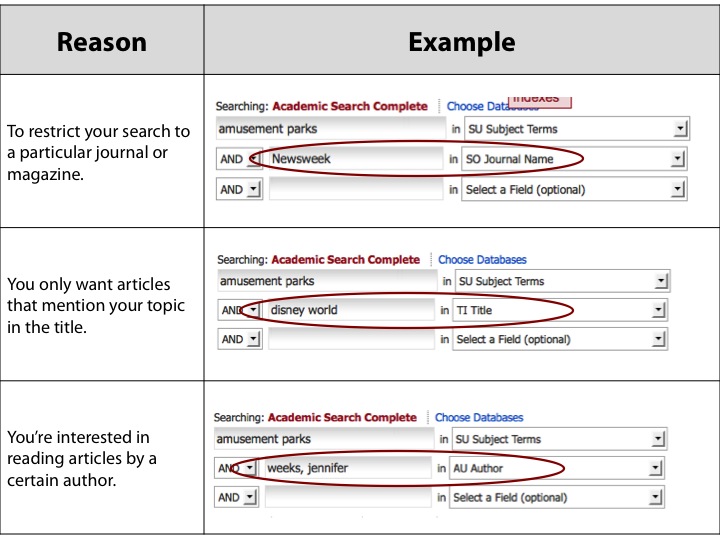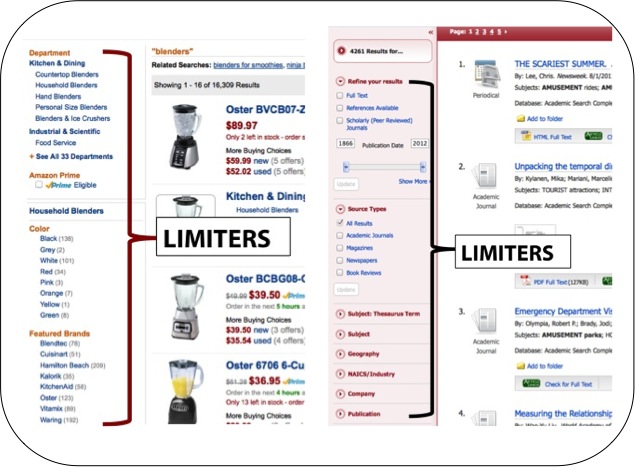| Today's Hours | Closed |
|---|
| Today's Hours | Closed |
|---|
We're almost done with step 3 of the research process!
Have you noticed that all of our search tips, from subject searching to truncation to Boolean, focus on narrowing results? There's a reason for that: you don't have time to look through thousands of possible articles. Without narrowing our original "theme parks" search, we'd have 5000+ articles to wade through.
It's much better to get a short list of really good articles than a long list full of useless resources. With that in mind, here are two more ways to narrow your search results.
We already know what a field is, right? It's a piece of information in a record: the title field, the author field, and so on. Remember when we did a subject search and told Academic Search Complete to only look in the "SU Subject Terms" field? Awesome news: you can limit your search to any of the fields in the drop-down!

Why would you want to only search a single field?

When we tell the database to find the word "amusement" in the title field, we're limiting our search. However, the word "limiter" has a slightly different meaning: it's a way to further limit results using specific database fields.
If you've ever shopped on Amazon.com, you've used limiters. On their results page, you can limit the products by price, color, brand, customer rating, and so forth. These options are called limiters, and they let you create a set of search results that exactly matches your desires. Databases like Academic Search Complete also have limiters.

Limiters are:
This video from Utah State University Libraries demonstrates how limiters can help you narrow your search results.
End of Module 2